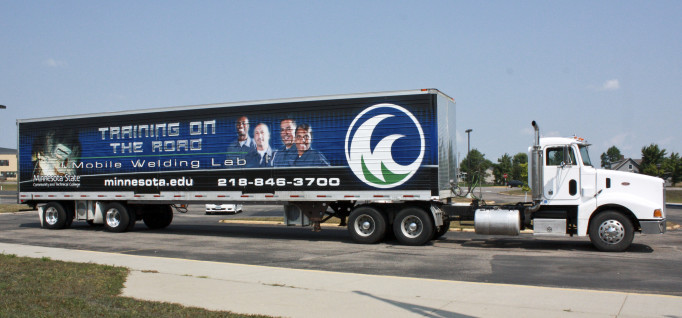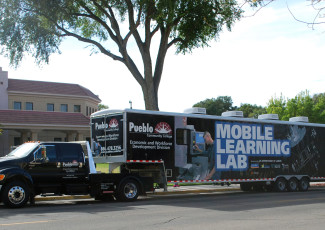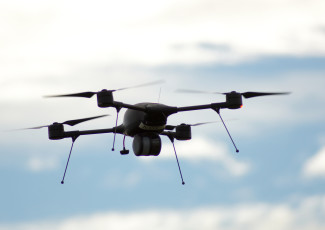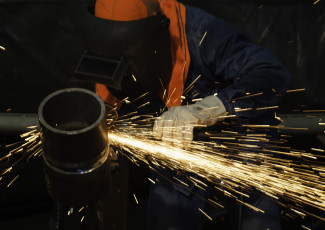How to Create Successful Mobile Learning Labs
By Ellen Ullman
April 18, 2016
Minnesota State Community and Technical College brings just-in-time employee training directly to employers.
How do you offer job training when employers can’t spare their workers for even a half day?
That’s the problem that the administrators at Minnesota State Community and Technical College’s (M State) set out to solve.
The Fargo/Moorhead region has the lowest unemployment in the country. Therefore, employers often need to hire M State students before they finish their entire program.
Since workers weren’t able to get to a campus, M State did the next best thing and brought its instruction to employers — in the form of mobile training units.
Mobile learning labs to the rescue
In 2013, M State created its first mobile unit, a welding lab, inside a trailer. This and the other mobile training labs can travel to work sites. The training can range from a 12-hour refresher course to a 160-hour certification program, depending on employer need.
“We work with high schools, industry partners, alternative learning centers — really, anyone who needs training,” says Carrie Brimhall, chief academic officer at M State. “For three years, the mobile welding lab has rarely sat idle, except for when the instructor has schedule conflicts.”
Because of the welding lab’s success, M State applied for a grant to develop additional mobile labs. With the input of industry partners, the college created a safety-certification mobile lab, a commercial driver’s licenses (CDL) training unit and a precision-manufacturing mobile classroom.
All four mobile units deliver noncredit training. “We have credit-based training available, too, so we are able to offer what the employers need,” Brimhall says.
Grow-your-own mobile lab
Each M State mobile lab is housed in the back of a trailer. It takes an average of three months to retrofit the trailers so they are ready for equipment installation.
The welding lab has 12 stations inside; electricians and contractors installed spaces, stairs, doors, windows and learning barriers. The CDL lab was the most challenging to retrofit because the simulators have temperature control, stability and humidity requirements.
The mobile labs are modularized so that equipment can be removed if, for instance, there’s a classroom available at the site. “It’s all about addressing our partner’s needs,” Brimhall says. “If the company has access to a conference room, we’re happy to offer the training there.”
Each training program starts with a conversation about what the employer needs. M State can then modify its mobile labs, so the training meets those needs. The M State team surveys employers afterward to ensure the training has helped employees add value.
“In Minnesota, the average growth rate for noncredit training at many colleges is small, but our offerings are increasing exponentially,” Brimhall says.
She attributes that success to the M State approach of “What value can we provide to you?” instead of “Here’s the one solution we offer.”






